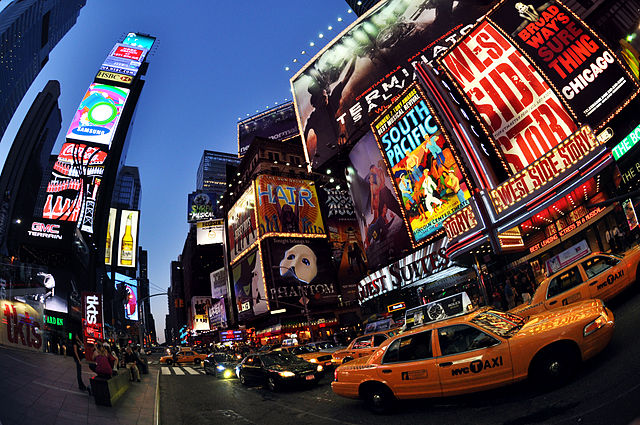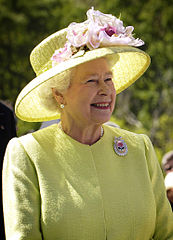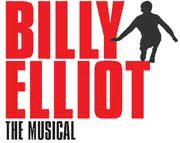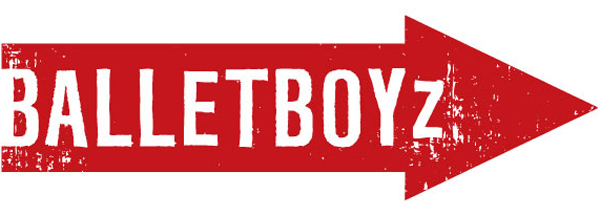 Karen Pilkington-Miksa, choreographer and artist, is the Founding Director of The New English Ballet Theatre. She holds a degree in education and is an Associate of the Royal Academy of Dance (ARAD). She ran her own dance group and school, and has choreographed for ballet, opera and the BBC.
Karen Pilkington-Miksa, choreographer and artist, is the Founding Director of The New English Ballet Theatre. She holds a degree in education and is an Associate of the Royal Academy of Dance (ARAD). She ran her own dance group and school, and has choreographed for ballet, opera and the BBC.
Tell us about your dance background.
I trained as a classical dancer and joined Seattle Ballet. I then came to London and ran my own studio and choreography group, of mainly classical ballet. I also had a second career as an artist and a sculptor!
After the years, I noticed a bottleneck in the industry – there was a huge backlog of talent and not enough opportunities for classical dancers, and so New English Ballet Theatre was born.
Explain the beginning of NEBT.
The company began as a summer festival of productions, looking to becoming a full time company of well trained dancers. We are neo-classical in genre and have a huge variety of styles and vocabulary in as wide a spectrum as possible.
Gaining charitable status took a long time, but the idea itself grew quickly in order to put the company together and offer performances.
During the last three years the company has employed over a hundred young artists including musicians, classical dancers, choreographers and designers, giving them lots of support at a high level. This company of emerging dancers was born from the huge talent pool out there and the lack of jobs available. It’s important to highlight that to audiences, as they don’t know how many good dancers don’t work because companies want a small number of dancers from hundreds of graduates each year.
Where is the company now?
We are solely dedicated to producing neo-classical work but as a cross-discipline company. In a way we are inspired by Diaghilev in commissioning a number of young artists, musicians and designers to work with us, offering career development for them.
Within two years of establishing the company it had performed in the Linbury Studio Theatre at the Royal Opera House, in addition to a premiere season at the Peacock Theatre which received great reviews – the company and its reputation is going from strength to strength.
What are you currently working on?
Our next performances are at the Sadler’s Wells’ Peacock Theatre in July, and following that at the Lantern Studio Theatre in Canary Wharf. We are currently rehearsing five world premieres! Some of the work have had previews and have received great feedback, especially ‘Kreutzer Sonata’, which is based in the Tolstoy novella of the same name.
What are your aims for the company?
Our long-term goals are to expand the programming and build up the company’s repertoire of commissioned works of exciting new neo-classical choreography.
We have been lucky to receive an Arts Council grant for audience development. We have also been booked to perform at the Cheltenham music festival and we are planning a tour and various cultural exchanges for 2015.
My aim is to make the company the premiere company for neo-classical work, as I think the UK especially has an appetite for this type of work – there is a diverse audience to support the company.
Where do you see the future of dance going?
Today the dance audience is widely spread and there has been an explosion of interest in dance. It has also become popular to ‘mix media’, and dance has become more sophisticated for it and will continue to. It’s fascinating.
The company is modern and has a wide range of styles in a crossover with classical work and because of that and our collaboration with young artists and film makers, our company is becoming very interesting to the general public.
What is your favourite part of dance?
I think the moving and lyrical expression of emotion that fits the choreography is my favourite – bleeding out of the soul of the dancer. When dance moves everyone, that what gives me the biggest thrill. This doesn’t have to be done just through a solo or pas de deux, as long as it expresses deeper emotions.
Photo by Joshua Lawrwence
 Musical theatre is captivating for many people, where the magic of illusion makes anything possible. For professional musical theatre performers, being on stage is the culmination of years of training and hard work; often encompassing more skills than were originally required by becoming a triple threat of singing, acting and dance. Now productions require an ever-increasing range of skills, such as puppetry and stilt-walking (Lion King), acrobatics (Pippin), playing a musical instrument (Fiddler on the Roof) and roller-skating (Starlight Express).
Musical theatre is captivating for many people, where the magic of illusion makes anything possible. For professional musical theatre performers, being on stage is the culmination of years of training and hard work; often encompassing more skills than were originally required by becoming a triple threat of singing, acting and dance. Now productions require an ever-increasing range of skills, such as puppetry and stilt-walking (Lion King), acrobatics (Pippin), playing a musical instrument (Fiddler on the Roof) and roller-skating (Starlight Express).
 It is often a revelation to dance in a studio without mirrors. Some dancers may feel uncomfortable and uncertain at first not to have mirrors, as they are not to be able to see what they are doing and check they are performing the exercises correctly. Despite this many would argue that the movement will feel right for the body, and mirrors are not required to feel this as they encourage dancers to ‘make shapes’ rather than initiate the movement from an internal source.
It is often a revelation to dance in a studio without mirrors. Some dancers may feel uncomfortable and uncertain at first not to have mirrors, as they are not to be able to see what they are doing and check they are performing the exercises correctly. Despite this many would argue that the movement will feel right for the body, and mirrors are not required to feel this as they encourage dancers to ‘make shapes’ rather than initiate the movement from an internal source. The Queen’s birthday honours recently recognised a multitude of talent in the awardees: actors Daniel Day-Lewis and Maggie Smith were recognised in the honours list, which also sees Young Vic artistic director David Lan and English National Opera’s John Berry honoured. The arts faired well as Day-Lewis was made a knight, and Smith was made a Companion of Honour.
The Queen’s birthday honours recently recognised a multitude of talent in the awardees: actors Daniel Day-Lewis and Maggie Smith were recognised in the honours list, which also sees Young Vic artistic director David Lan and English National Opera’s John Berry honoured. The arts faired well as Day-Lewis was made a knight, and Smith was made a Companion of Honour. Directed and choreographed by Will Tuckett, the Vaudeville Theatre will see the Royal Opera House production of The Wind in the Willows return to London’s West End this Christmas, running from 26 November 2014.
Directed and choreographed by Will Tuckett, the Vaudeville Theatre will see the Royal Opera House production of The Wind in the Willows return to London’s West End this Christmas, running from 26 November 2014. It has been rumoured that the hit musical Billy Elliot is to be screened in over 300 cinemas in September. A special matinee performance on 28 September will be broadcast live, with a repeat showing to be broadcast in the evening and Ruthie Henshall, who recently joined the cast as Mrs Wilkinson, will star in performance alongside some special guests making the screenings a milestone in the musical’s history.
It has been rumoured that the hit musical Billy Elliot is to be screened in over 300 cinemas in September. A special matinee performance on 28 September will be broadcast live, with a repeat showing to be broadcast in the evening and Ruthie Henshall, who recently joined the cast as Mrs Wilkinson, will star in performance alongside some special guests making the screenings a milestone in the musical’s history. Returning to the venue that hosted their first public performance – as George Piper Dances in 2001 – the award-winning BalletBoyz® will perform at Roundhouse Summer Sessions on 31 July and 1 August 2014. This will mark the final UK performances of Russell Maliphant’s piece Fallen and Liam Scarlett’s Serpent. The sessions will also offer an exclusive first look at new work Young Men.
Returning to the venue that hosted their first public performance – as George Piper Dances in 2001 – the award-winning BalletBoyz® will perform at Roundhouse Summer Sessions on 31 July and 1 August 2014. This will mark the final UK performances of Russell Maliphant’s piece Fallen and Liam Scarlett’s Serpent. The sessions will also offer an exclusive first look at new work Young Men. Karen Pilkington-Miksa, choreographer and artist, is the Founding Director of The New English Ballet Theatre. She holds a degree in education and is an Associate of the Royal Academy of Dance (ARAD). She ran her own dance group and school, and has choreographed for ballet, opera and the BBC.
Karen Pilkington-Miksa, choreographer and artist, is the Founding Director of The New English Ballet Theatre. She holds a degree in education and is an Associate of the Royal Academy of Dance (ARAD). She ran her own dance group and school, and has choreographed for ballet, opera and the BBC. 12 July will see South East London’s Greenwich Park taken over by a skipping extravaganza. Hundreds of people are expected to join in the hugely entertaining and energetic Through & Out: Skipping Extravaganza, a brand new commission by Greenwich Dance for Big Dance 2014, which forms part of the Royal Greenwich Festivals 2014.
12 July will see South East London’s Greenwich Park taken over by a skipping extravaganza. Hundreds of people are expected to join in the hugely entertaining and energetic Through & Out: Skipping Extravaganza, a brand new commission by Greenwich Dance for Big Dance 2014, which forms part of the Royal Greenwich Festivals 2014. The line up has been revealed for West End LIVE 2014, and it looks set to delight each and every visitor. Last year more than half a million people descended on Trafalgar Square for West End LIVE, and this year’s event promises to be even bigger and better. Now in it’s tenth year, the celebration of the West End’s top shows is a staple in the capital’s performing arts calendar. It will take on the square on 21 and 22 June.
The line up has been revealed for West End LIVE 2014, and it looks set to delight each and every visitor. Last year more than half a million people descended on Trafalgar Square for West End LIVE, and this year’s event promises to be even bigger and better. Now in it’s tenth year, the celebration of the West End’s top shows is a staple in the capital’s performing arts calendar. It will take on the square on 21 and 22 June. In both the musical theatre and acting industries – in fact, any of the performing arts – securing an agent can be tricky, and almost as difficult as securing jobs! Some graduates from performing colleges leave with agents already secured; most of these are the agency that works alongside the institution and the graduates are automatically added to their books. Other instances of securing agents upon graduation is a direct result of the students inviting agents to their final college showcases, and being taken on that way.
In both the musical theatre and acting industries – in fact, any of the performing arts – securing an agent can be tricky, and almost as difficult as securing jobs! Some graduates from performing colleges leave with agents already secured; most of these are the agency that works alongside the institution and the graduates are automatically added to their books. Other instances of securing agents upon graduation is a direct result of the students inviting agents to their final college showcases, and being taken on that way.